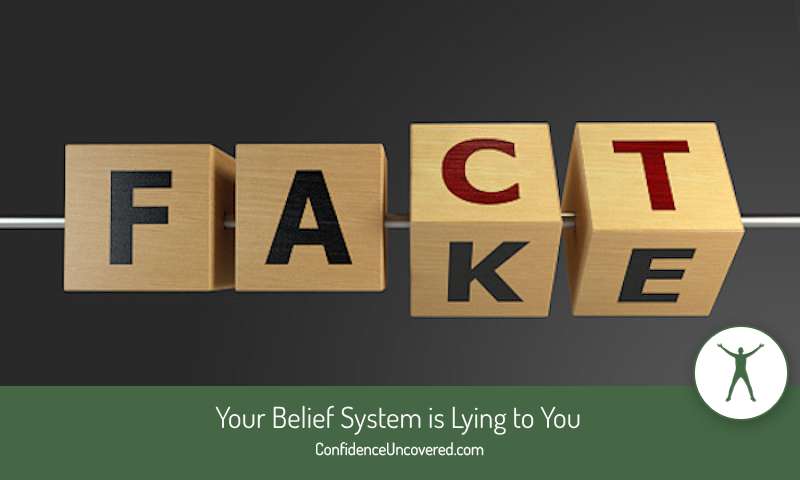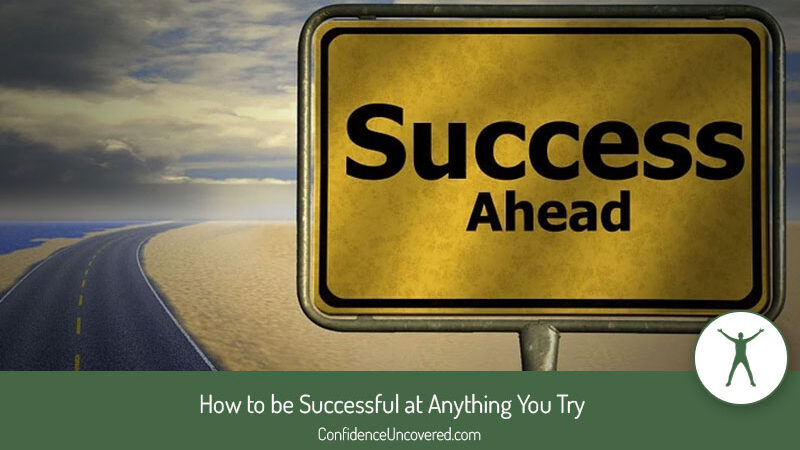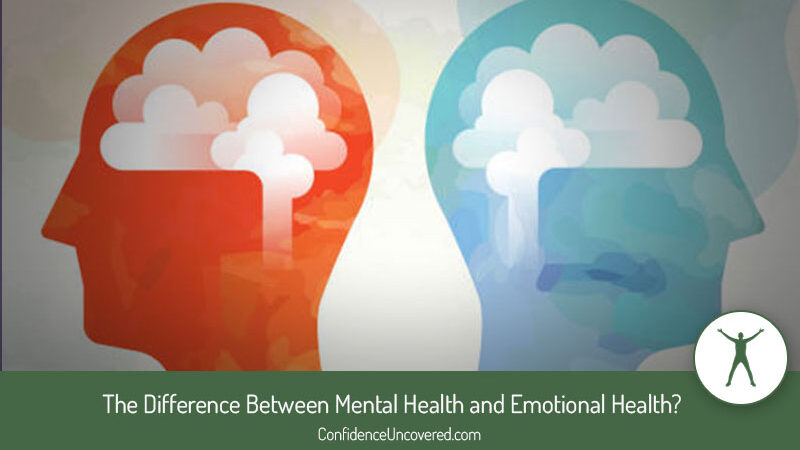Your Belief System is Lying to You

How your belief system is lying to you
Your belief system is a library of stories you tell yourself, to explain the things you experience in life.
Everyone has a database of thoughts, that allow them to make unconscious decisions in a simple and efficient way. Unfortunately, these beliefs are usually general in nature and often, they’re untrue, and unhelpful.
Your belief system works along side your Core Values. I’m not going to get into the details of values here. You can read more about them in this post, if you’d like.
Understanding Beliefs
As well as your values, you’ll also have a huge pile of beliefs that help you meet those values.
Unfortunately, our beliefs are made up!

They’re unlikely to have much basis in real life experience, and they’re probably built from either things we’ve been told about, or rash judgments we’ve made in the heat of the moment.
Because, sometimes, we develop beliefs from oversimplifying how we feel about a situation, while it’s happening.
A belief is ‘an acceptance that something is true, without necessarily having any proof‘
Here’s a simple example…
No doubt, you’ve had the experience when you’ve tried something new and it failed terribly?
You probably thought to yourself something like… “Why do I even bother? Whenever I try new things, it never works out.”
This is a generalized belief. Other things in this category are things like, “Everyone lies to me”, or “Snakes are dangerous”, “Dogs bite”, etc.
Items in your belief system usually start something like…
- Men are…
- Women are…
- People are…
- Everyone is…
- I am… etc.
Ask a better question
If you find yourself using any of these terms, ask yourself the question, “Is that really true?” You’ll find that actually, in almost every case, it can’t possibly be true.

The next time you feel stupid, insecure, or incompetent, etc., ask yourself if that’s a useful belief to have.
If you think that a situation is impossible, ask yourself, is that a useful belief to have.
If it isn’t, then decide to believe something else instead.
Going back to the original example, “Why do I even bother? Whenever I try new things, it never works out.”. Is that true? Does it NEVER work out? Have you never tried anything new, where the outcome was successful?
What about walking, or riding a bicycle, or getting your fist job, or meeting your first partner?
We all have stupid beliefs, but it only takes a moment to change them if we ask the right questions.
You pick up your belief system from a whole host of different places.
Some you decide for yourself from stories you’ve been told, other are given to you by your parents, or other family members. Some you develop from your own experiences.
Unfortunately, in a lot of cases, those beliefs turn out to be unhelpful at best, and can sometimes even be hurtful to you.
The biggest problem, is that no matter what that belief is, we trust it without question. In fact, we’ll even find ways to prove it’s true. This effect is called ‘Confirmation Bias’.
This when you interpret a situation, to fit with your belief system.
Shall I explain?
Beliefs control your World
Here’s a shortened version of a story, for example, that I heard a while ago showing confirmation bias…
Two guys were in a cafe in Egypt, drinking and talking about God.
“Look,” one of them said, “there is no God and I can prove it. A week ago I got lost in the desert without any supplies. After a few hours in the burning Sun with no water, I thought I was surely going to die. So I thought, maybe I’ve been wrong all these years and decided I would try out the whole God thing. I got down on my knees and prayed. I told God, that if he saved me, I would always believe in him and give thanks every day.”
The other guy looked at him and smiled, “Well, I’m really glad he saved you!”
The first guy replied, “That’s just it. He didn’t save me. Some Bedouin came by a few minutes later with their camels, picked me up and brought me back to town. God didn’t do anything.”
This story demonstrates how two people can interpret completely opposite meanings from the same exact story.
The teller used their bias to prove the non-existence of God. The other, for proof of a God.
How you perceive the outcome of this story, or any other story for that matter, is entirely dependent on the beliefs you choose to accept.
Everything we know is based on belief.
Marcus Aurelius reportedly said….
“Everything we hear is an opinion, not a fact. Everything we see is a perspective, not the truth.”
Unsurprisingly, often our problems are not actually problems. They’re simply symptoms of our unhelpful beliefs. So, it doesn’t matter whether a belief is true or not, what matters is whether it’s helpful.
Next steps
So, your exercise for today is to grab a note book, then write down one limiting belief you have. One negative thing you find yourself saying (or thinking), when things go wrong. Then ask yourself if it’s really true.
Once you’ve realized it’s not true, think about what you’d like to believe instead. Write that down underneath.
For example, “I never do anything right”, could become “Sometimes I make mistakes, but that’s okay. Next time I’ll do better.”
Then whenever you start having that ‘pattern‘ of thought, stop. Then remind yourself that the belief isn’t true and state your new belief instead.
What are your thoughts? Leave them in the comments 🙂




